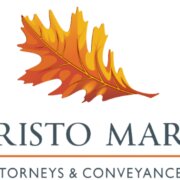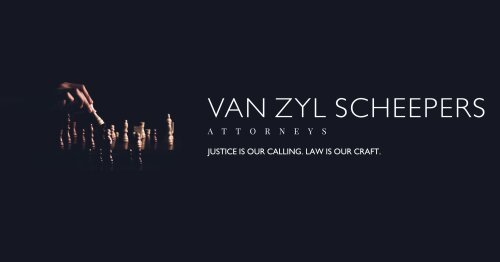Best Restructuring & Insolvency Lawyers in Stellenbosch
Share your needs with us, get contacted by law firms.
Free. Takes 2 min.
List of the best lawyers in Stellenbosch, South Africa
South Africa Restructuring & Insolvency Legal Articles
Browse our 2 legal articles about Restructuring & Insolvency in South Africa written by expert lawyers.
- Cross-Border Insolvency: Protecting Assets in South Africa
- Legal Framework: South Africa governs cross-border insolvency through the Cross-Border Insolvency Act 42 of 2000, which incorporates the UNCITRAL Model Law. Mandatory Recognition: Foreign liquidators or "representatives" have no standing to deal with South African assets until they obtain a formal recognition order from a South African High Court. COMI... Read more →
- Business Rescue Proceedings in South Africa for Directors
- Business rescue is a formal rehabilitation process designed to save "financially distressed" companies from liquidation. A general moratorium is triggered immediately, providing legal protection against creditor claims and asset seizures. The Business Rescue Practitioner (BRP) takes full management control of the company, effectively displacing the board's autonomous authority. Directors face... Read more →
About Restructuring & Insolvency Law in Stellenbosch, South Africa
Restructuring and insolvency law in Stellenbosch, South Africa refers to the legal processes available to individuals and businesses facing financial distress or unable to meet their financial obligations. Stellenbosch, situated in the Western Cape, is subject to national South African laws that govern insolvency and business rescue procedures. These legal frameworks aim to balance the interests of debtors, creditors, employees, and other stakeholders. The goal is either to rehabilitate financially distressed entities or to liquidate assets in an orderly fashion to minimize losses.
Why You May Need a Lawyer
Dealing with insolvency and restructuring matters often involves complex legal and financial issues. Common scenarios where individuals and businesses in Stellenbosch may require the assistance of a restructuring and insolvency lawyer include:
- Inability to pay debts on time, either personally or as a business
- Facing demands or threats of litigation from creditors
- Receiving a notice of liquidation or sequestration proceedings
- Trying to save a business by restructuring debts or negotiating with creditors
- Considering entering into voluntary liquidation or business rescue
- Needing advice on the effects of insolvency on employment, contracts, or assets
- Finding guidance on director duties and personal risks in a failing company
- Challenging the validity or fairness of insolvency proceedings
- Recovering debts from insolvent individuals or companies
A lawyer can help you understand your rights, explore your options, and navigate the legal process to achieve the best possible outcome.
Local Laws Overview
South African law governs all restructuring and insolvency matters in Stellenbosch. The most important statutory frameworks include:
- Insolvency Act 24 of 1936: Regulates the process for personal and corporate insolvency (sequestration and liquidation), setting out how assets are distributed among creditors.
- Companies Act 71 of 2008: Introduces provisions for business rescue, aiming to rehabilitate financially distressed companies through a formal process overseen by a business rescue practitioner.
Key aspects relevant to Stellenbosch residents and businesses include:
- Sequestration: The process where an individual's estate is declared insolvent, allowing for the orderly distribution of assets to creditors.
- Liquidation: The winding up of a company or close corporation because it cannot pay its debts or is otherwise insolvent.
- Business Rescue: A legal procedure allowing companies to restructure their finances and operations under court supervision to avoid liquidation and preserve jobs.
- Creditor and Debtor Rights: Protection mechanisms for both parties during insolvency, including the ranking of claims and the process for challenging irregular transactions.
- Director Liability: Company directors have duties to act in the best interest of the company and can be held personally liable for reckless or fraudulent trading during insolvency.
Understanding these laws is critical for anyone facing financial distress in Stellenbosch, as failure to comply with legal requirements may aggravate financial problems or lead to personal liability.
Frequently Asked Questions
What is the difference between liquidation and business rescue?
Liquidation involves winding up a business and selling its assets to pay creditors. Business rescue, on the other hand, aims to restructure and rehabilitate a financially distressed company so it can continue operating.
Can individuals also rely on restructuring procedures?
Individuals cannot use business rescue but can apply for debt review or voluntary sequestration if they are unable to pay their debts.
What happens to employees during insolvency proceedings?
Employees have preferential rights to certain unpaid wages and benefits. In business rescue, efforts are made to retain jobs, while in liquidation, employment contracts are often terminated.
What are the typical outcomes of a business rescue process?
The company may return to sustainability, enter into an agreement with creditors, or be placed in liquidation if rescue efforts fail.
Can directors be held personally liable for company debts?
Yes, directors can be held liable if found to have traded recklessly, fraudulently, or failed to comply with statutory duties during insolvency.
How are creditors paid in a liquidation?
Creditors are paid according to a specific ranking, with secured creditors taking preference over unsecured creditors. Employees and certain taxes also enjoy preferential status.
Is it possible to stop a liquidation order?
It may be possible to oppose liquidation by settling debts, negotiating with creditors, or challenging the grounds for liquidation with legal assistance.
Do I have to go to court for all insolvency matters?
Some insolvency proceedings require a court order, such as sequestration, liquidation, and business rescue. Others, like debt review, may be handled administratively.
How long does insolvency or liquidation take in South Africa?
Timelines vary depending on complexity, the number of creditors, and whether disputes arise. Business rescue is typically time-bound by law, while liquidation and sequestration can take several months or even years.
What should I do if my business is in financial distress?
Seek legal advice as soon as possible to explore all available options, avoid personal liability, and protect your interests during any restructuring or insolvency process.
Additional Resources
If you need assistance or more information about restructuring and insolvency in Stellenbosch, consider the following resources:
- Western Cape High Court - For handling formal insolvency and business rescue applications
- Companies and Intellectual Property Commission (CIPC) - For guidance on business rescue and company liquidations
- South African Law Society - For finding qualified lawyers experienced in insolvency matters
- Debt Counselling Services - For individuals seeking debt review or relief
- Local university legal clinics, such as Stellenbosch University Law Clinic, which offer pro bono advice in certain cases
Next Steps
If you believe you need legal assistance with restructuring or insolvency matters in Stellenbosch, start by gathering all relevant financial documents and information about your current obligations and assets. Consult with a qualified lawyer who specializes in insolvency and restructuring law. They can assess your situation, explain your rights and responsibilities, and guide you through the most appropriate legal processes, whether that means negotiating with creditors, exploring business rescue, or initiating liquidation or sequestration proceedings. Acting early can help protect your interests and increase the likelihood of a favorable outcome.
Lawzana helps you find the best lawyers and law firms in Stellenbosch through a curated and pre-screened list of qualified legal professionals. Our platform offers rankings and detailed profiles of attorneys and law firms, allowing you to compare based on practice areas, including Restructuring & Insolvency, experience, and client feedback.
Each profile includes a description of the firm's areas of practice, client reviews, team members and partners, year of establishment, spoken languages, office locations, contact information, social media presence, and any published articles or resources. Most firms on our platform speak English and are experienced in both local and international legal matters.
Get a quote from top-rated law firms in Stellenbosch, South Africa — quickly, securely, and without unnecessary hassle.
Disclaimer:
The information provided on this page is for general informational purposes only and does not constitute legal advice. While we strive to ensure the accuracy and relevance of the content, legal information may change over time, and interpretations of the law can vary. You should always consult with a qualified legal professional for advice specific to your situation.
We disclaim all liability for actions taken or not taken based on the content of this page. If you believe any information is incorrect or outdated, please contact us, and we will review and update it where appropriate.












